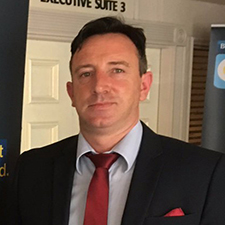Alan White
“A tree with strong roots, laughs at storms” – Malay Proverb.
I believe that to facilitate well-being in children it is vital that well-being education begins at an early age. As a Secondary school teacher, I have always admired Primary school teachers. They have the ability to develop positive relationships with their students that is often more difficult to do at second level. At primary school, teachers have the same group for the full school year and they become so much more than just a teacher. They become role-models, counsellors, nurses, referees and much more to their students. That is why Primary level is an important time to introduce the concept of well-being education.
Our self-esteem is the foundation for our well-being. Without positive self-esteem we are likely to struggle in our lives as we will always feel like we are not good enough, experience feelings of guilt and behave in often self-destructive ways. How we think and feel about ourselves is the biggest factor that informs our internal narrative. If we have positive self-esteem, the story we tell ourselves tends to be largely a positive one. However if we have poor self- esteem the stories we tend to tell ourselves can be negative, self-deprecating and ultimately counterproductive to our hopes and dreams.
Our sense of self, begins to develop from the moment we are born. Young children are amazing at picking up subtle cues from the important people in their lives, their parents and extended family initially and as they grow their teacher’s friends and anyone else they regularly interact with. If a child is brought up in a positive and affirming environment, where they are loved unconditionally, encouraged and feel safe, positive self-esteem tends to develop. The opposite is the case if a child is brought up in an environment where they feel that they are only loved conditionally, i.e. if they conform, achieve, and behave. If a child experiences an environment where there is regular tension, sarcasm, over punishment, they will quickly internalise these experiences and begin to blame and criticise themselves.
That is why it is important to allow children to develop a strong sense of self from an early age. If a child has a strong base from which to grow, they are not only more likely to see themselves as capable and valuing themselves as an individual, but they are also more likely to flourish. The first 1000 days theory is one that makes a lot of sense in this regard. The first 1000 days of a child’s development is crucial to how they develop and how they build a platform for their future development. I believe that well-being education should be fun and inspiring. Well-being education is becoming, thankfully, more accepted as a part of our education, not just for children but also for us as teachers, who, if we are honest need well-being in our own lives to help cope with what life throws at us.
Alan White is a Secondary School Teacher at Bishopstown Community School and is well known for his inspiring work in introducing mental health initiatives into the Irish school system. His secondary school resource “Choices” is published by Creagh Castle Publishing. Alan’s new resource “Oscar & Jack” written specifically for Primary Schools will be published by Creagh Castle Publishing in March and is a series of stories and accompanying workbook for children to help them to manage their emotions and maintain mental well-being.






